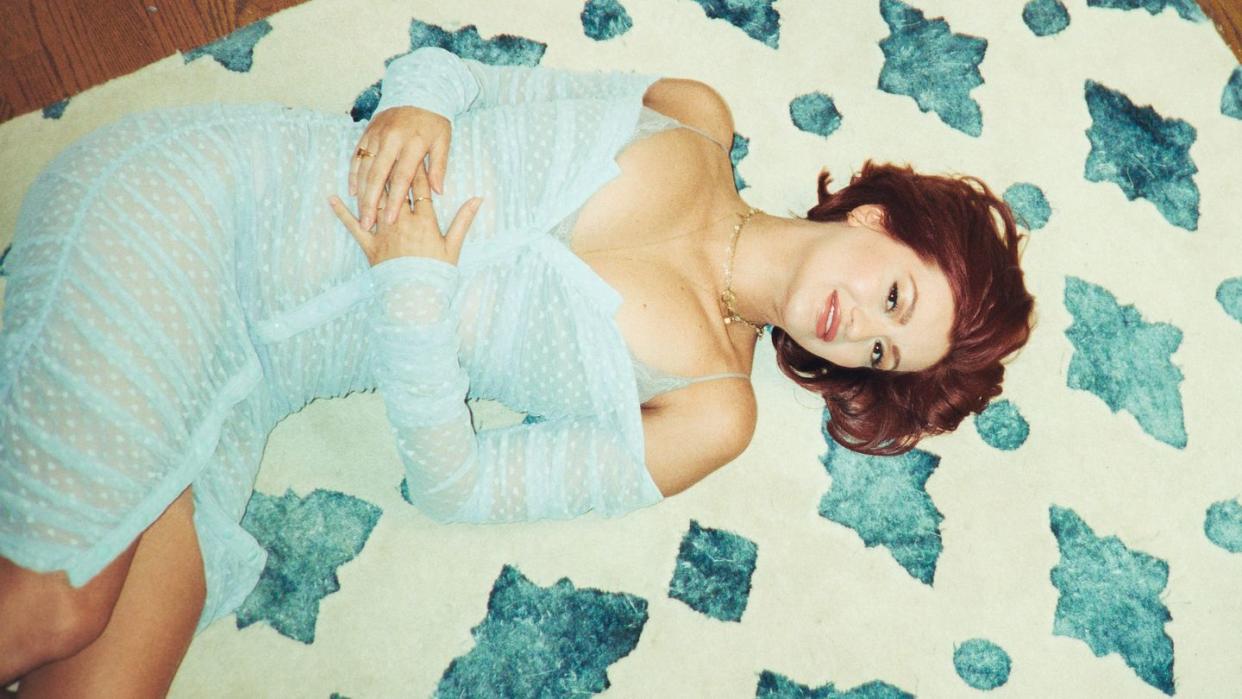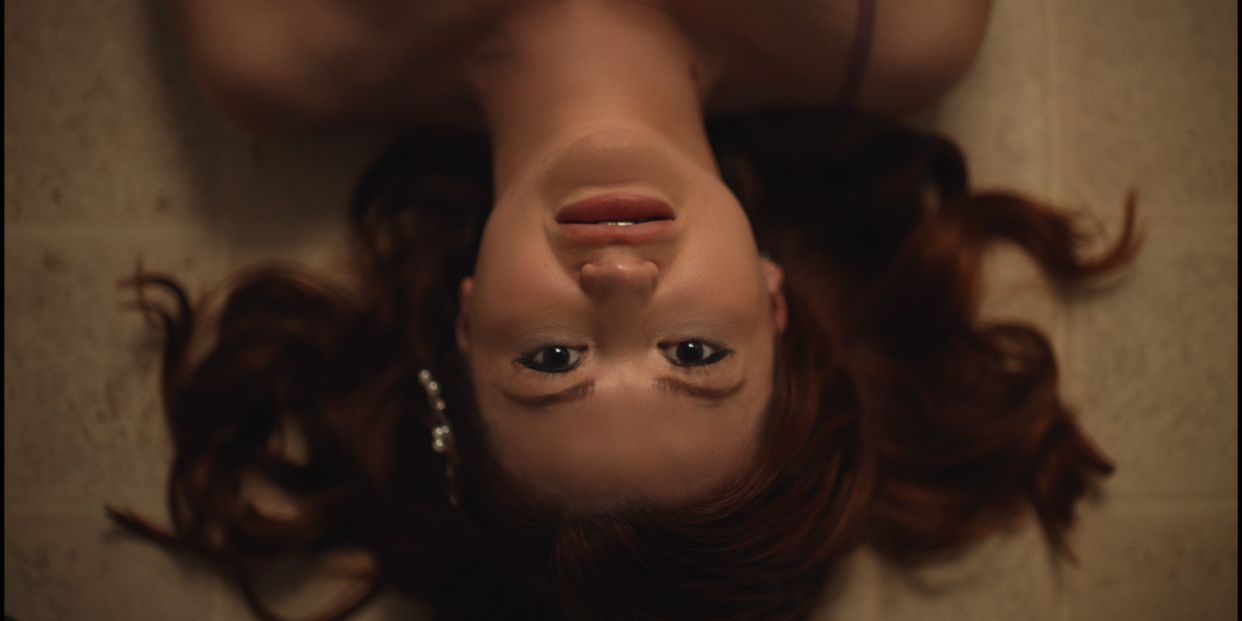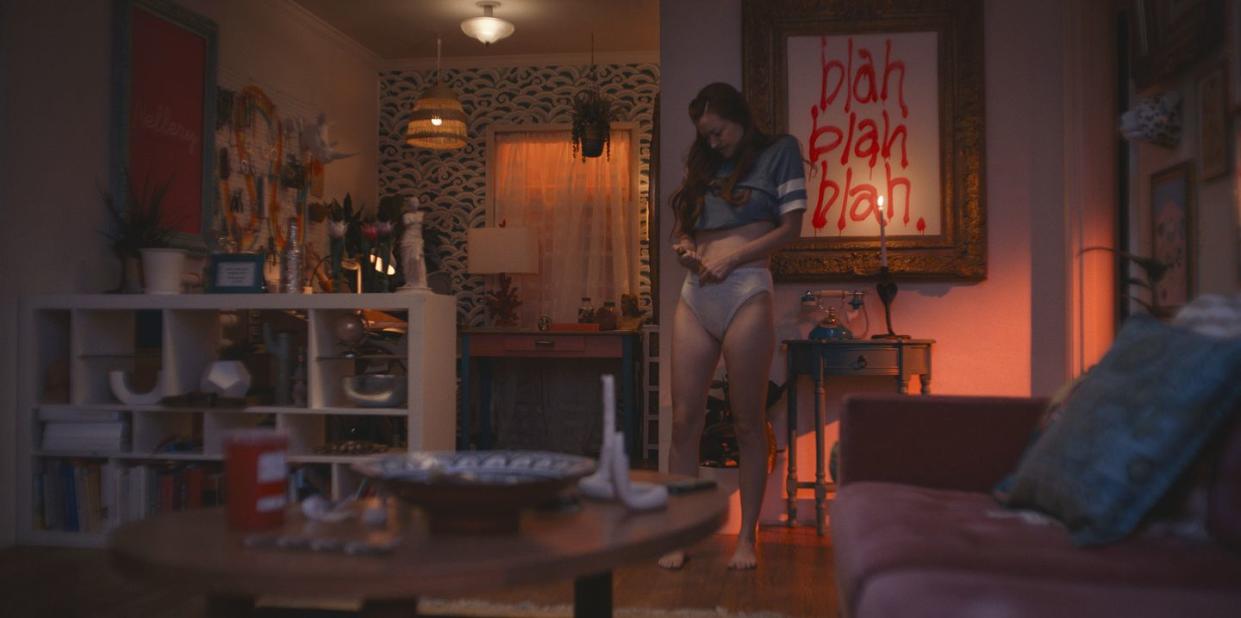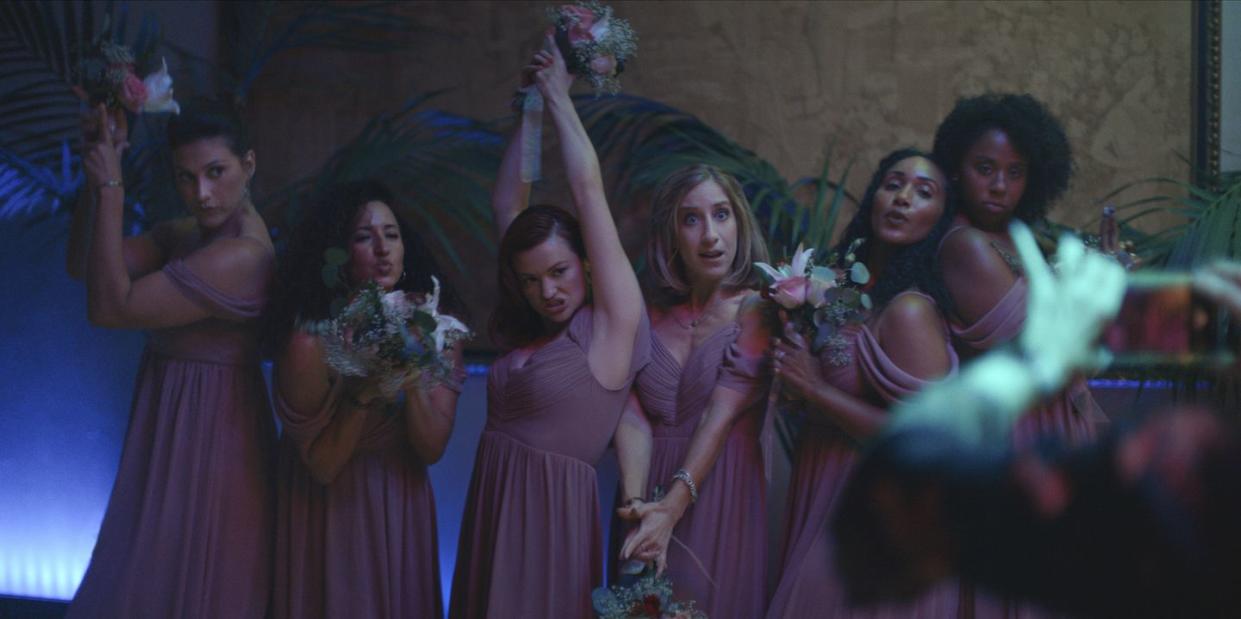“Scrambled” Is a Hilarious and Heartfelt Film About Freezing Your Eggs

In May of 2020, I froze my eggs. I was 35, single, and elective medical procedures were becoming available again following months of a complete Covid shutdown. Vaccines were nowhere in sight, and going on a date at the time meant risking, you know, your life. At a time when everything felt so unbelievably out of control, freezing my eggs felt like the most tangible way to take my future into my own hands.
I counted myself among a lucky group of women. It was a privilege I could afford the procedure, I had a doctor I loved and trusted, and a community of friends who had walked this path before me, and who were so willing to answer my endless questions. Still, the whole process felt singular in its entirety. I was the one who had to measure and mix medicines together every night, who had to grab my stomach and plunge a needle into my body, who had to deal with the physical and emotional side effects of raging hormones. It was at once daunting, terrifying, and empowering.
It’s been almost four decades since the first human birth from a frozen egg, yet egg-freezing remains a taboo subject—within our friend groups and in the media; I learned this quickly after beginning the process. Fortunately, though years later, someone who could change that went through the same experience: writer, director, and actor Leah McKendrick.
In McKendrick’s new film, Scrambled—which she also wrote and directed—she stars as Nellie, a character not terribly far off from McKendrick herself: single, early 30s, and ready to freeze her eggs. “My North Star was: Tell the true story. Just tell the truth,” she tells me. And tell the truth she did, in all of its messy and honest vulnerability, in Scrambled.
If you have frozen your eggs, you’ll recall all of the uncanny details McKendrick beautifully weaves into her film. If you haven’t, it’s a hilarious, raw, and heartfelt look into a process that women shouldn’t have to wonder so much about, really. One can only hope it’s the first in a long line of similarly meaningful stories for women, who were long overdue for a film like this.
You really put yourself out there with this film. I was laughing; I was hysterically crying. I was really right there with you. How are you feeling about having put yourself out there in such a vulnerable way?
From the actual egg-freezing process to writing the script, to prepping the film, to shooting the film—I felt like I was in a cocoon of safety, because my North Star was “Tell the true story. Just tell the truth.” I’m sure you have these moments … that are really clear in your mind, and you’re just really trying to capture the panic and the fear and the loneliness and then the empowerment. All of it. Your head is just really full of these specific dreams of being able to capture what you experience and put it on film. The process of releasing it has been much more difficult for me. It’s almost like it hit me really late what I had done.
That makes a lot of sense, given how all of this progressed for you.
It feels like in some ways when I was making it, it was a baby in my belly and it was safe there. I’ve heard this story from some of my friends that have had babies … that the baby is born and suddenly there’s this [feeling], which is: “This baby is now outside of me, and I have to protect it and no one can hold it and no one can touch it, because I felt in control and now I can see that it’s a completely different entity from me.” I think that’s what’s happening, a little bit. Anybody can say anything they want to say. They can rip it apart. They can call it misogynistic; they can say that I’m promoting … all kinds of dark stuff that I’m not attempting to say at all.
But it’s not my business. And that’s the hardest part, is that that’s the whole point. The movie is not meant to be shared with [just] my family. A movie is meant to be consumed by as many people as possible. That’s the dream. So I’m having a hard time with it, to be honest.

When did you go through the egg-freezing process, and how soon after did you start to think, “I have an idea …”
I had made up my mind and said I’m going to do it at 34, and I’m not even going to think about it. I was able to justify in my mind [the financial costs] with it being research for a movie that I will make.
During the process, I could barely write, because I was really bloated. I was not feeling good. Halfway through, when I’m finally getting the shots and the meds down, I’m starting to get very dark in my head, feeling like I had really failed as a woman, and this was my punishment—now you have to spend all this money and you have to inject yourself. Oh, boo-hoo. You’re in isolation from a pandemic and you don’t have a man, so you have to do it yourself. And you can't afford $300 per night to have a professional come. So I felt like I had screwed up in some really big way. And I started jotting notes and I started writing some scenes, trying to capture this raw moment, but not knowing what I was going to do.
As soon as I got through it, I felt so good and so proud of myself. And then I went straight back into my studio writing jobs and I was swept up in building their dreams. This was 2021. The top of 2022, I find out in one day that they had killed two of my films at a big studio, one that I had been on for almost three years. Then another one that was going to be my directorial debut.
It was time to build my own dream. So I told my team, “I’m going to write that movie. I need a month off. I’m going to write that movie about freezing my eggs, and I’m going to shoot it this summer with my own money, with my friends if I have to. I have to be on set, I have to make something.” There were all these movies about IVF and couples holding each other while they’re trying to get pregnant. I thought, “That is not my experience, and that’s actually quite alienating. I’m feeling even more alone right now.” So I just said, “I’m going to write the movie that I wish existed while I was freezing my eggs,’ which is messy and embarrassing and lonely and captures all of the single-girl horrors, but also the single-girl empowerment and liberation.
Obviously, you are not Nellie, the main character, but how much of you is in her?
A lot. I’m not imaginative enough. With some people, it blows me away when they’re writing movies about aliens in space. I’m like, “How do you do that without ever having been to space?” I just work from what I know. I work with the people that I love, the experiences I’ve had, the experiences of my friends and my family. Somebody very close to me had a miscarriage, and it was complex, more complex than I expected. And I think it hurts more than you expect it to. From the outside, it’s such a different experience, and the person is truly—the woman is alone in it. And so I think your job is to just say, “I am here sitting with you in the darkness. I am here holding vigil.”

What surprised you most about yourself while making this? And what has surprised you the most about people’s reactions? Has anything in particular really touched you?
I was in a relationship when I started prepping the film, when I started shooting the film, and I didn’t feel supported. I really didn’t feel contained. I didn’t feel affirmed. I didn’t feel seen. And something really beautiful happened, and I felt so alive and sparkly from the process of making; I felt so in alignment making my movie that I didn’t need him. … [It] was like I fell out of love in this really organic way, where I just was so in love with my movie and in love with the people around me and what we were creating.
Three weeks into the movie, I still had another week of shooting, and I was like, “I’m not happy. I can’t do this anymore.” I would work all day and I would shoot 14 hours. I would come home and I’d be like, “I can call my boyfriend now.” [But] I’d be like, “I don’t want to. I really just want to watch my footage and see what I got from today.” So that was a big learning lesson. I think so much of my life has been spent in relationships. And it was a really powerful moment for me to realize this isn’t a kicking and screaming, fighting, crying breakup. This is me going, “I’m enough for me. I, in this moment, am self-partnered. I am happy. I have done the impossible. I’m working my butt off and people are recognizing it. I’m fucking proud of myself, so I’m not going to be brought down by a relationship that’s not meeting me on my level.” In some ways [it was] the easiest breakup of my life, because it was like I was feeling the strength of Nellie and reliving the strength of that process of freezing my eggs and reminding myself that, no, I’m not going to settle. I don’t need to rush. I have time.
How did going through this process shape your surrounding friendships? I was very familiar with going to weddings alone, always being the bridesmaid, being the stellar friend, etc. Was that a part of your experience? For me, it could be very emotionally exhausting, and sometimes you had those moments of “Well, why isn’t this happening for me?”
I could talk about this for days. It reminds me a lot of that Sex and the City episode. Do you remember the episode when Carrie gets her Manolos? That was such an iconic moment that I didn’t understand when I was younger. Then as an adult, it just speaks to me, like, “Preach!” I am Nellie. I am always there. I’m at every baby shower. I’m famous for having the best gifts. I’ve got all the tricks of the trade. I get dope little tiny Converse sneakers. I’m at every bachelorette. I take you to a high tea, I bring you the hot lingerie. Ask anybody—I am that friend. I have spent so much money, and I’m happy to do it. I love my friends and I believe in milestones. I believe in celebrating. I believe in birthdays. I’m somewhat sentimental in that way, that I want us all to usher each other into new stages and eras of our lives.
But I will say that I don’t always feel that my babies—my films, my achievements with my work—are always treated with the same sacredness and respect as some of these more traditional milestones, like getting engaged, like the buying of the house. And that’s really hurtful. And I really hope in some tiny way, my film can help us all discuss the ways that we celebrate each other and how fucking hard it is in this business, in any business, as a woman, to reach some of these places.
[It’s like:] “I don’t know when I’m going to have a baby, but I hope that you’ll get a babysitter and come with me to the movie, so we can see Scrambled, because I have been working on this for three years.” You know what I mean? “I was there for your baby shower. I was there for your engagement party.” Some of my friends know that. And believe me, I have let other friends know that. It is tough, because I feel—and there was a monologue that we cut from the film—but I go, “I don’t want your baby to be an excuse for you to be a bad friend to me.” I’m sorry, but you got to show up for me. I have shown up for you. Just because I’m not getting married doesn’t mean that this is not an important, pivotal moment for you to support me in.

What do you wish you had known before you started the process?
That you cannot do it alone. It takes a village. You can physically inject yourself alone, of course. I did every single one on my own. But text your friends. Text your mama. Text the people that you feel the safest with, and just say, “Hey, I want to let you know I’m starting this process. I don’t know what it’s going to be like. I might go a little mad for a few days. I might need to call you late at night. I might need you to hold me while I cry. I might need you to text me when I’m having these dark thoughts.” Just cue them up, so that you have rallied your community around you, to contain you and hold you during these next couple weeks, and root you on when you get there.
I think that so many of us hide this fact that we’re going into freezing our eggs. We don’t tell anybody, or we just tell just a select few, because it’s stigmatized and we’re a little bit embarrassed. I don’t want women to have to go through this alone.
In a perfect world, what do you hope audiences take away from the movie?
I want women to feel that they are valid. Whatever they want to do with their bodies, their futures, their fertility, it is valid. They should feel no shame in whatever they choose. Whether it’s kids, lots of kids, no kids, kids later, surrogate, adopted kids, fostering kids. You want to be the cool aunt for life? God bless you. I just want us all to talk about this shit more and destigmatize it, so that [for] the next generation, it’s such a nonissue. “Oh, I’m freezing my eggs next week.” “Oh, cool. Good for you. Call me if you need anything.” That would be awesome.
This interview has been condensed and edited for clarity.
You Might Also Like
